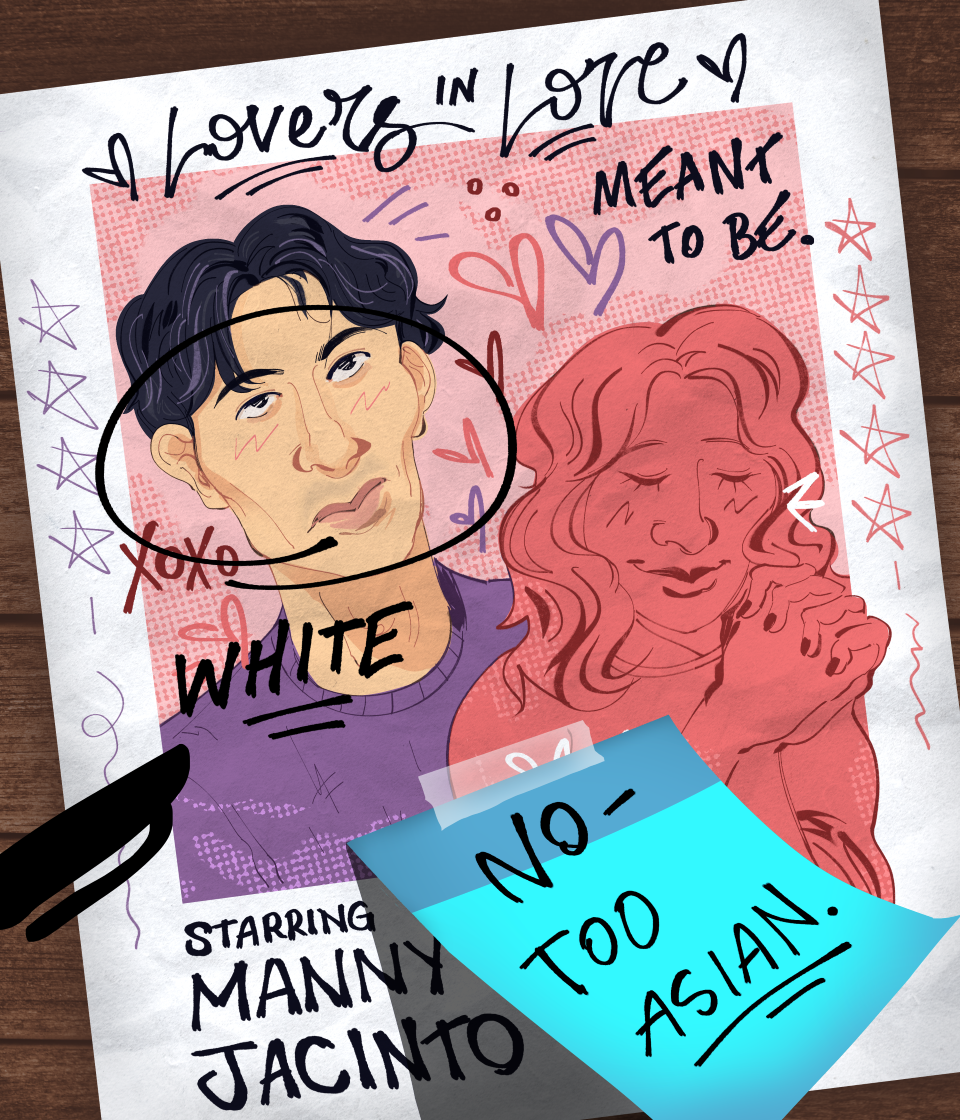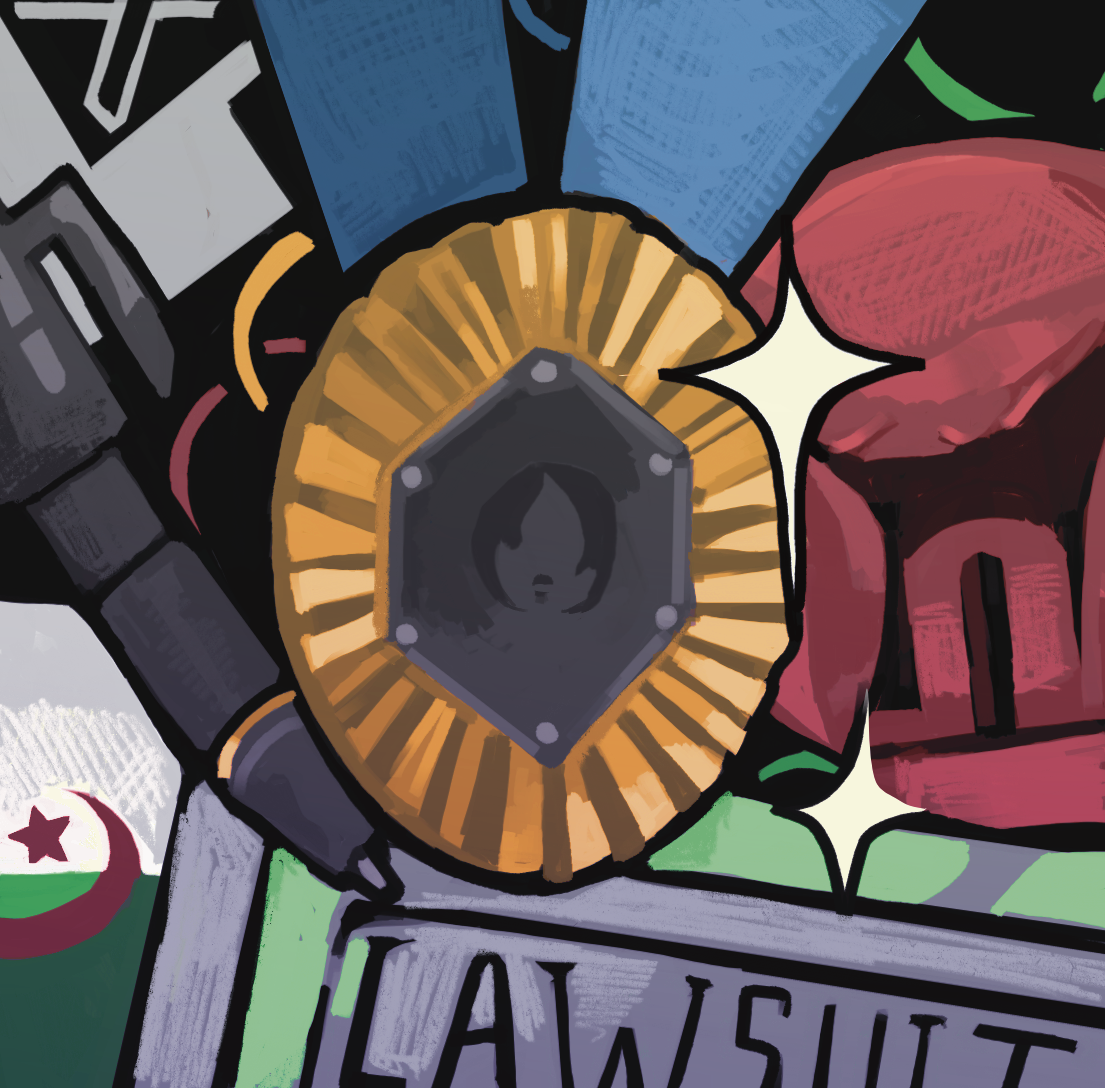Correction, Sept. 6: A previous version of the article incorrectly stated which character Qimir restrained with The Force. The correct character is Mae.
Despite my loyalty to the Star Wars franchise, I’ve never really understood the fanfare for Sith Lords. Anakin Skywalker is a genocidal maniac. Kylo Ren is a wannabe of the aforementioned genocidal maniac. The other ones are grotesque to look at. That is, until I saw Manny Jacinto’s performance in “The Acolyte.” The show and Jacinto’s performance was incredibly compelling — and canceled all too soon. The cancellation seems to be symptomatic of Hollywood’s aversion to characters with no proximity to whiteness, which ruins nonwhite narratives and cripples nonwhite creatives’ work.
Jacinto’s character Qimir’s plot-twist Sith reveal is nothing short of delicious. Introduced as “The Stranger,” Jacinto gives the same goofy, fun-loving energy as his former role as Jason Mendoza in the sitcom “The Good Place,” and the audience is meant to assume he is a pathetically hilarious character that miraculously survives every episode. This lighthearted approach to the character makes the contrast of the reveal so much sharper and infinitely more satisfying — all the while ensuring that Jacinto’s character is still an enjoyable presence. Even though he effortlessly slashes through a fleet of Jedi, some of whom the audience had grown to care for, it becomes increasingly difficult to root against him. For the first time while watching Star Wars, I wanted to see the bad guy win. The icing on the cake is when he reveals himself to the protagonist Osha, played by Amandla Stenberg, and calls out to her in a chilling voice. He holds Osha’s twin Mae, also played by Stenberg, with The Force and asks, “You really didn’t know it was me? Not even deep down?” The feeling of hopelessness that Osha feels in that moment from watching most of her friends be ruthlessly slaughtered by someone she thought she could trust is palpable. The scene is terrifying — in that moment, Jacinto is terrifying. And as I watched this unfold on my laptop, I couldn’t help but think: Why don’t I see more of this guy? He should be in every single movie and TV show until he retires. Where is the Manny Jacinto hype?
Imagine my surprise when Disney announces the show’s cancellation. On Jacinto’s birthday, no less. This isn’t the first time Jacinto has been snubbed: In “Top Gun: Maverick,” all of Jacinto’s character Fritz’s lines were cut and his screen-time was left essentially non-existent. The “Top Gun” series has established itself as an emblem of American masculinity: Tom Cruise does something insane in a jet, there is a touching scene of male camaraderie. “Top Gun” has also established itself as very white. When I think of the star players of the latest installation, “Top Gun: Maverick,” I think of Miles Teller, Glen Powell or even Lewis Pullman. Why don’t I, and most of the audience who saw the film, think of Jacinto? Why can’t an Asian man be a part of this film’s golden-cast Americana aesthetic? These unanswered questions set up the framework for a gutting reality that even Jacinto admits to: “People of color have to create narratives for themselves.”
However, even when people of color are the focus of a major television show or film and are thus “creating their own narratives,” there is always a backdrop or supplement of whiteness. Take the second season of “Bridgerton.” Kate and Edwina Sharma, the season’s two new additions, are treated as deserving of affection and desire, a rarity for Indian characters within Western film and television, especially those of darker skin. However, nonwhite women’s beauty and desirability seemingly cannot be celebrated unless a white person is involved. Kate and Edwina are the love interests of the white Anthony Bridgerton. Interracial relationships are to be lauded and there is nothing inherently wrong with people of color dating white people, but there is a strange standard for how people of color’s worth is tied to whiteness in Western media. Later this month on Broadway, Rachel Zegler, who is Latina, and Kit Connor, who is white, will play Romeo and Juliet in Sam Gold’s iteration of the Shakespeare classic. Months prior, it was Tom Holland and Francesca Amewudah-Rivers in a grungier West End revival. Even Jacinto has played the quasi-perfect nonwhite love interest for a white protagonist.
It is this aversion to portraying interracial couples that do not involve white people that has led to the downfall of “The Acolyte.” The romantic tension between Qimir and Osha is so tangible, addicting even, that it rivals iconic Star Wars romances like Anakin and Padme. So much so that, in true “Twisters” fashion, they cut out a kiss scene between the two of them. But because of internet outrage over Star Wars being infected by “woke ideology”— which is really just people of color existing in a multitude — the show had low viewership and was canceled.
We are often afraid of what we do not understand, and thus, what we cannot see. If art serves one purpose, it is to reflect the human condition. Having narratives like “Bridgerton’s” are great for interracial couples that involve white people, but other narratives must exist for people of color who choose to date other people of color. People of color should, and deserve to, have stories that are meant for them. So, Jacinto, I hope you do get to play the unapologetically desirable lead in a romance film with another person of color. Not just for your sake, but for mine.





